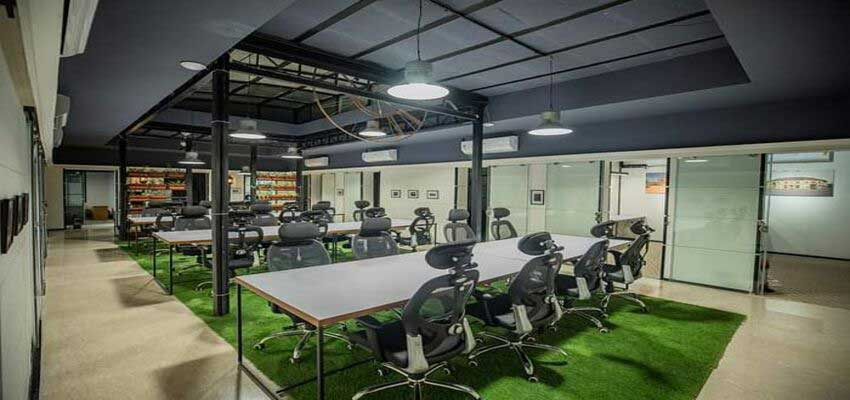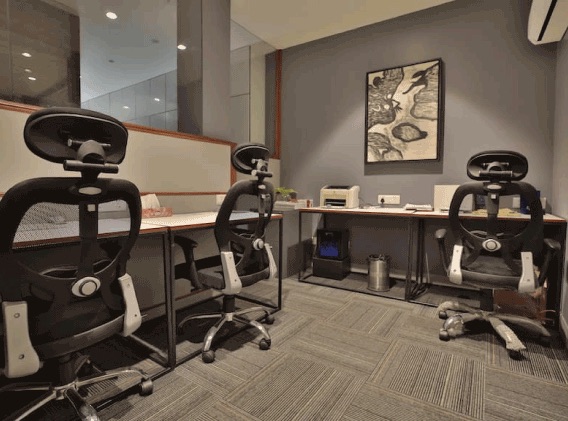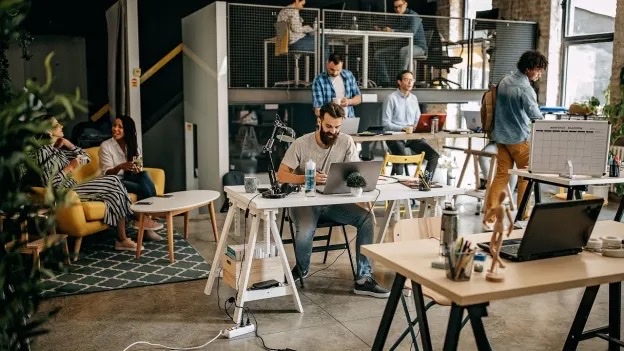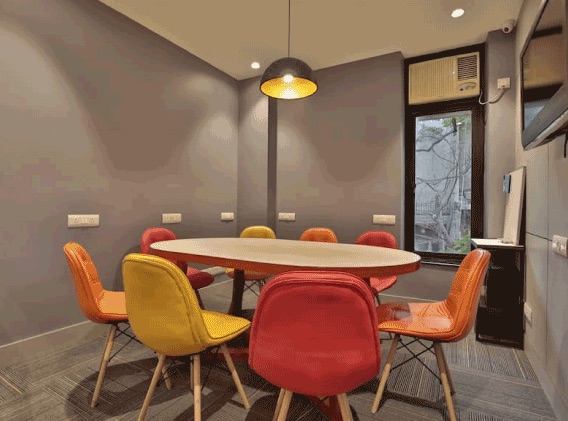Here's how this Delhi start-up is providing Premium co-working spaces to budding entrepreneurs

-
Here's how this Delhi start-up is providing Premium co-working spaces to budding entrepreneurs
 11 Nov. 2019
ABL Workspaces
11 Nov. 2019
ABL Workspaces 07:02 AM
07:02 AM
Welcome to Here's how this Delhi start-up is providing Premium co-working spaces to budding entrepreneurs
According to various studies, coworking spaces are likely to jump by about 30 per cent to 40 per cent in 2018 and by 2020, around 13.5 million Indians will operate out of shared spaces. This coworking spaces start-up in Delhi offers well-furnished office spaces to its clients across segments including new-age start-ups, independent working professionals and mid-sized companies.
Akshita Gupta, along with another co-founder Ankur Gupta, started ABL Workspaces in 2017 and focused on addressing the challenges around the availability of 'Premium office spaces for budding entrepreneurs. ABL, headquartered in Delhi, is currently helping companies, new-age start-ups, and independent professionals unlock their potential by catering to their real estate and hospitality needs. We spoke to Akshita about how coworking spaces are the future, life as a woman entrepreneur and more.
Excerpts from an informative conversation:
Do you feel coworking spaces are the future, as workplaces seem to be more open to being flexible?
Yes, of course, coworking is going to be the most sought-after business in our country. The industry has not only changed the way companies work today but has given a boost to the start-up sector by helping them cut down their cost and earn more. As an industry, coworking spaces in India have grown tremendously in the last two years at a much faster pace. In a country like ours, unique benefits like shared resources, networking opportunity and reduced investment cost are driving this trend.
How would you say ABL Workingspaces is helping in all of this?
We offer our services to all the new-age start-ups and corporates who are looking for a premium co-working spaces. We have designed our interiors for their comfort and convenience and offer the best of services at value for money as compared to players in the industry. In fact, more than 30 per cent of our clients are start-up companies which indicate that we don’t restrict our workspaces only for corporates or MNCs.
Recent News

Welcome to Corporate shift to hybrid work shores up demand for co-working spaces
ABL Workspace that has so far been primarily operating out of Delhi-NCR with 2,500 seats is now targeting adding 15,000 seats across the country by March 2023. Mumbai, Pune, Bengaluru and Hyderabad are some of the major markets it is eyeing. Besides, the firm is keen on foraying into tier two and three cities given that tech companies have started booking space in smaller cities to save costs. “Coworking will be a good solution for such budgeted problems,” its founder and CEO Akshita Gupta tells Fortune India. It just closed a deal with Kotak Mahindra Bank too.

Welcome to What are the Union Budget 2022 expectations of corporate leaders?
Akshita Gupta, CEO, ABL Workspace, “The coworking segment has grown exponentially over the years and has had a major impact on the performance and utilisation of commercial real estate. I feel now is the time when we should keep into consideration this very aspect and ensure progressive policy reforms to boost the market’s growth. I would want to put forth a humble request to the Finance Ministry to recognizing the coworking space under schemes such as REIT, provide tax benefits and consider reducing the TDS deduction rates to upscale the segment. It would be great if govt can consider bringing coworking spaces into the 2% TDS bracket from the present 10% slab. This will not only boost the market’s growth but will further allow the coworking spaces seamlessly manage the cash flows since it is a service-based segment. I strongly feel that these reforms if introduced will play a major role in driving the growth of the real estate sector in the times to come. Talking from start-ups POV, it is usually entrepreneurs from the early and mid-start-ups that prefer coworking spaces. However, costings like registration charges and stamp duty at registrar offices are borne by the coworking offices and if government can reduce these charges, then it would directly benefit the end-users as they will have to spend less for the services. I am also of the view that if the requisite financial assistance can be provided to the start-ups, then it will indirectly help in driving the growth of the coworking spaces as well.”

Welcome to 2022: The beginning of a golden era of co-working spaces?
According to a Cushman & Wakefield report, coworking operators expanded their portfolio aggressively last year and took on lease 21 per cent more office area - 4.91 million square feet in 2021 from 4.05 million square feet in the previous year - across the top eight cities of Bengaluru, Hyderabad, Pune, Mumbai, Delhi-NCR, Chennai, Kolkata, Ahmedabad to meet the rising demand for flexible workspaces from corporates amid the pandemic.
According to another report by JLL, India's coworking space market is likely to cross 50 million square feet by 2023.
Industry experts say that the sector is only poised to grow stronger.

Welcome to Why Co-working Sector Will Emerge Stronger In 2022
The co-working space has undergone various changes since its inception in the late 2000s. With the death of cubicles and open floorplans gaining popularity to working spaces providing employees with foosball, table tennis and pool tables. But this was before COVID-19, the pandemic that has redefined the concept of working especially co-working spaces in past two years. It has not only forced the employers to change their work policies and strategies but has also been giving preference to hybrid model to perfectly fit into the new normal world.


